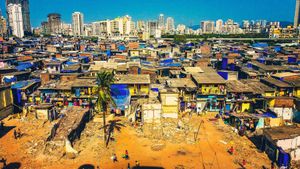Population Nearing 8 Billion

According to a new report from the United Nations, the global population will reach eight billion in November of this year. Although the world population is growing, the speed of growth is slowing down. In 2020, the rate fell below 1% for the first time since 1950.
A lot of the projected population growth will happen in eight countries. Those countries are in Africa (Congo, Egypt, Ethiopia, Nigeria, and Tanzania) and South Asia (India, Pakistan, and the Philippines). According to the UN, when a population grows quickly, it is more difficult to get rid of poverty and malnutrition. Conversely, improving healthcare, education, and gender equality reduces birth rates and population growth.
The report, World Population Prospects 2022, also says that the population of India will become bigger than that of China in 2023. Both China and India have tried to slow population growth over recent decades. China had a more restrictive rule, known as the one-child policy, from 1980 to 2015. As a result, China has a disproportionately elderly population and slower population growth than India.
The global population is expected to peak at 10.4 billion during the 2080s.
Sources: washingtonpost.com, apnews.com
For source links, see the article on ESLNewsStories.com
Audio
Hear the article spoken:
Useful Language
- Below (adv) - under
- Projected (adj) - a future amount that is calculated based on current information
- Poverty (n) - extremely poor
- Malnutrition (n) - unhealthy because you don’t have enough food or the right foods
- Conversely (adv) - introduces an opposing idea
- Prospect (n) - what might happen in the future
- Restrictive (adj) - something that limits freedom
- Disproportionately (adv) - when something is too large or too small in relation to something else
- Elderly (adj) - old
- Peak (v) - to reach its highest level
Discussion
Discuss the following questions with your partner(s).
- How do you feel about crowded places?
- When is it fun to be with a large group of people?
- Do you like to be alone sometimes? Where do you go when you need some time and space to yourself?
- What is the population of your country, and how is it changing?
- When you were a child, what was the global population? Does it feel like it is growing quickly? Is this a problem?
- For a country, what are the advantages and disadvantages of having a large population?
- What do you think about the one-child policy that China used to have?
- When there are more old people than young people in a country, what kinds of problems can arise?
- Can the Earth provide enough food for ten billion people?
- Why does improving healthcare, education, and gender equality result in lower birth rates?
- China and India are neighbors that have huge populations and improving economies. What will their relationship be like in the future?